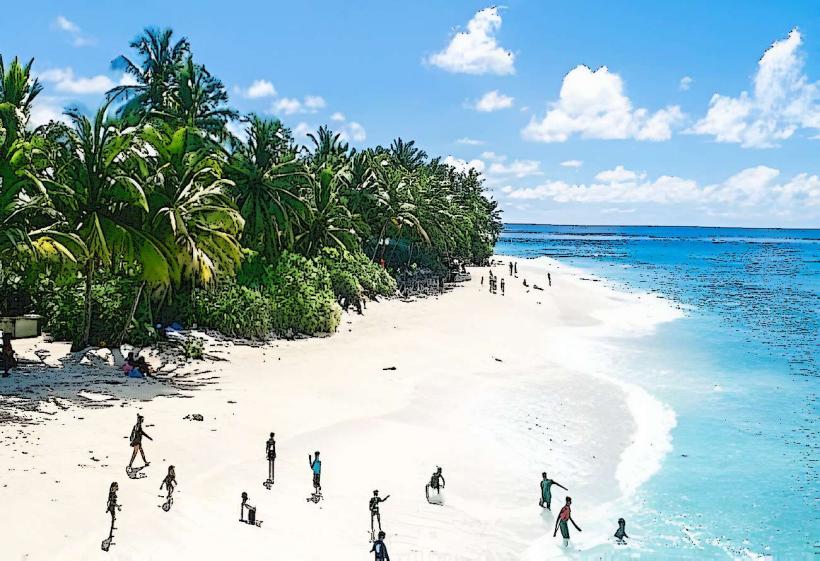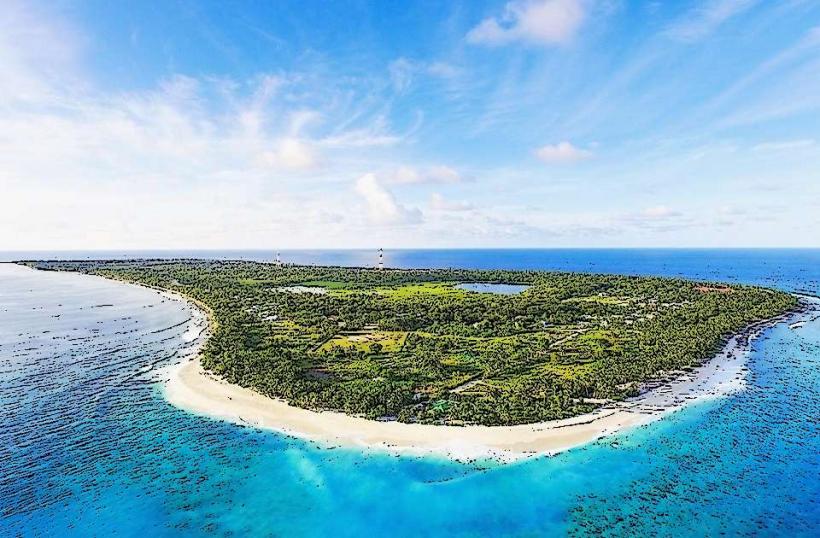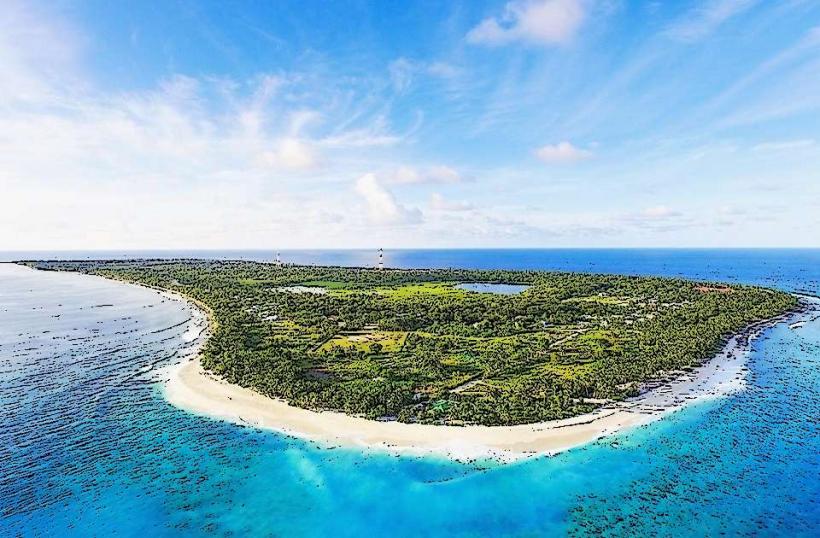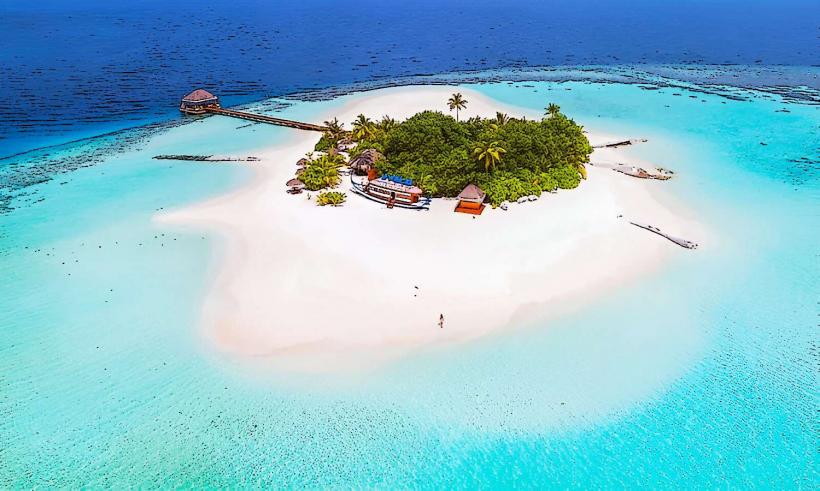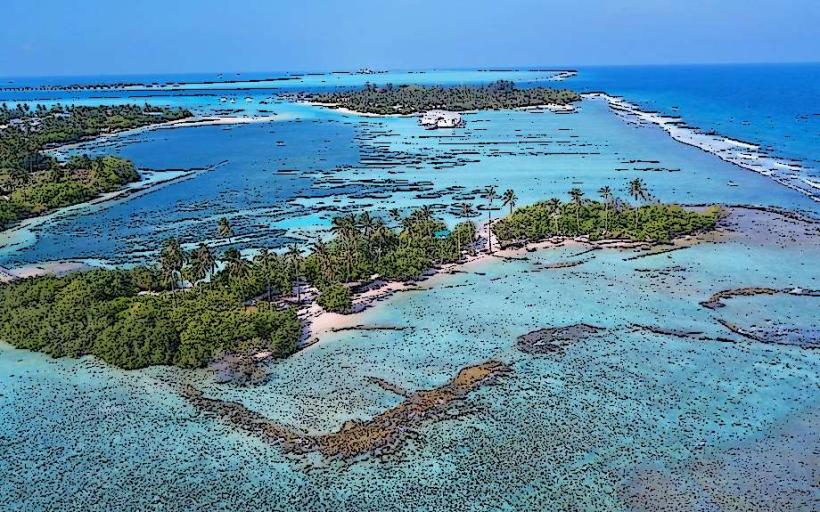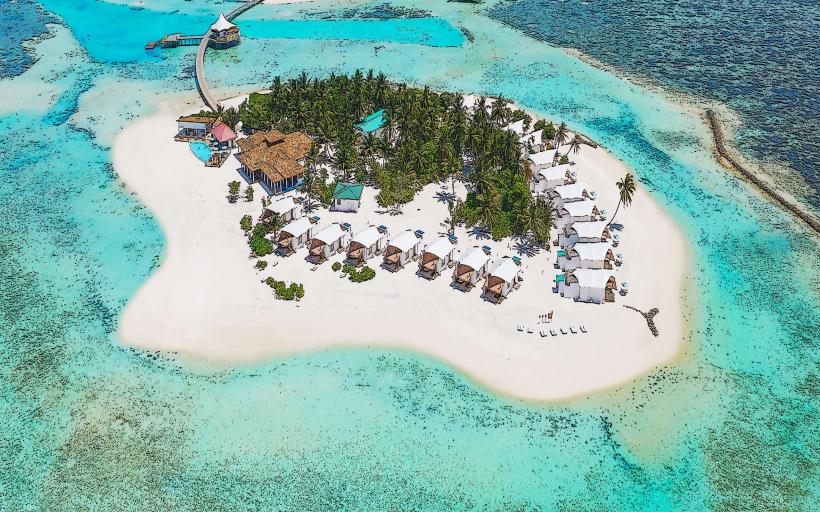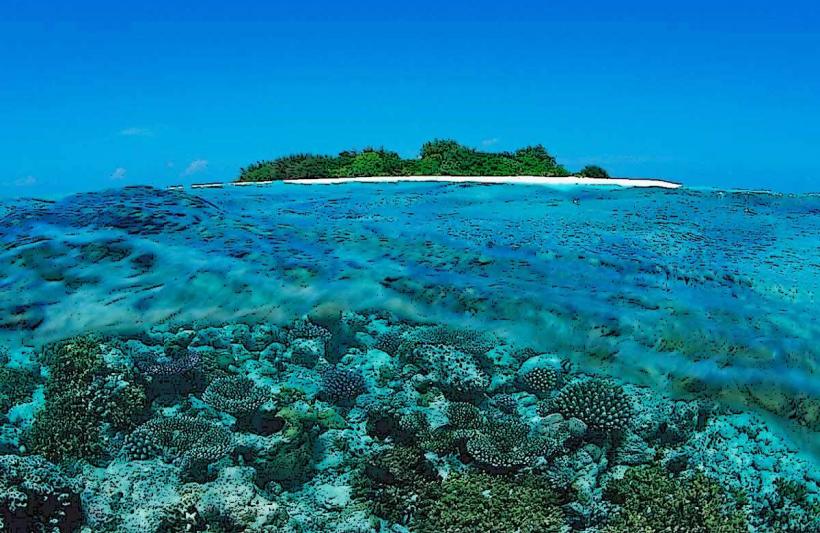Information
Landmark: Fuvahmulah AtollCity: Fuvahmulah
Country: Maldives
Continent: Asia
Fuvahmulah Atoll is a unique geographical and ecological area located in the southernmost part of the Maldives, approximately 500 kilometers south of the capital, Malé. Unlike other Maldivian atolls, Fuvahmulah Atoll is unique in that it consists of only one island, Fuvahmulah Island, which is the largest single island in the Maldives. This makes it distinct among the many other atolls that are composed of numerous smaller islands. Here’s a detailed look at Fuvahmulah Atoll:
1. Geography and Location
- Location: Fuvahmulah is situated in the southernmost part of the Maldives, in the Indian Ocean. It is part of the Gaafu Dhaal Atoll administrative region. The island of Fuvahmulah is the only island in the Fuvahmulah Atoll, unlike other atolls in the Maldives that consist of numerous islands and islets.
- Size: The island spans an area of approximately 4.5 square kilometers, making it the largest single island in the Maldives. Fuvahmulah’s size and elevation set it apart from the many other smaller, flat islands in the archipelago.
- Elevation: The island of Fuvahmulah is elevated, which is rare in the Maldives, where most islands are low-lying. This elevation contributes to its unique ecosystem and biodiversity.
2. Ecology and Biodiversity
- Diverse Ecosystems: Fuvahmulah Island is home to a variety of ecosystems, ranging from its freshwater lakes and dense tropical vegetation to its coral reefs and coastal areas. The island's ecosystems provide a home for a wide range of wildlife, many species of which are not found on other islands in the Maldives.
- Freshwater Lakes: The island features several freshwater lakes, the largest of which is Dhadimagi Kilhi. These lakes are home to a variety of freshwater flora and fauna, creating an environment that is different from the typically saltwater-based ecosystems found on other Maldivian islands.
- Flora and Fauna: The lush vegetation of Fuvahmulah supports unique species of plants, birds, and small mammals. The island's diverse habitats also attract a wide variety of birds, including migratory species. Some of the island's bird species are endemic to the region, making it a haven for birdwatchers.
3. Marine Life and Diving
- Marine Biodiversity: Fuvahmulah Atoll's waters are teeming with diverse marine life, including some species not commonly found in other parts of the Maldives. Its coral reefs are rich with marine life, including manta rays, whale sharks, dolphins, turtles, and a variety of tropical fish.
- Diving and Snorkeling: Fuvahmulah is a top destination for diving and snorkeling enthusiasts. The island is particularly famous for its whale shark sightings, which are frequent, especially at whale shark reefs around the island. The coral reefs are relatively untouched, making them ideal for underwater exploration.
- Diving Sites: Fuvahmulah has several popular dive sites, including:
- Tiger Reef: Known for sightings of oceanic whitetip sharks.
- Manta Reef: A hotspot for observing manta rays.
- Whale Shark Reef: One of the best places in the Maldives for whale shark sightings.
4. Cultural and Community Aspects
- Population and Lifestyle: Fuvahmulah is home to around 15,000 residents, and its community is based on fishing, agriculture, and small-scale tourism. The island is known for its strong sense of community, with most residents living in the main town, which serves as the hub for trade and services.
- Traditional Culture: The people of Fuvahmulah have maintained their traditional way of life, with fishing playing a major role in the local economy. The island's culture is strongly influenced by Islam, and visitors can explore local mosques and historical sites while learning about the island's customs and lifestyle.
- Cuisine: The cuisine of Fuvahmulah features local Maldivian dishes, with a focus on seafood and ingredients from the island’s agriculture. Some popular dishes include:
- Mas Huni: A traditional Maldivian breakfast dish made from tuna, coconut, and other fresh ingredients.
- Fihunu Mas: Grilled fish served with rice and coconut-based sides.
- Garudhiya: A fish soup served with rice, lime, and chili paste.
5. Tourism and Activities
- Eco-Tourism: Fuvahmulah is a growing eco-tourism destination, with an emphasis on sustainable travel and environmental conservation. The island's focus on eco-tourism makes it an attractive destination for travelers who wish to explore the natural beauty of the Maldives while contributing to the protection of its delicate ecosystems.
- Water Sports: In addition to diving and snorkeling, Fuvahmulah offers activities such as kayaking, stand-up paddleboarding, and jet skiing. Its relatively remote location and pristine environment make it an ideal place for water sports and outdoor adventures.
- Island Hopping: Fuvahmulah offers the opportunity for island hopping, allowing visitors to explore nearby smaller islands, sandbanks, and remote coral reefs. The surrounding waters provide a range of opportunities for exploring untouched beaches and secluded spots.
- Fishing: Fishing is a major activity on Fuvahmulah, and visitors can join local fishermen on traditional fishing boats for both day trips and night fishing excursions. The island is known for its big-game fishing opportunities, where visitors can catch a variety of fish species.
6. Conservation and Sustainability
- Marine Conservation: Fuvahmulah plays a key role in marine conservation efforts in the Maldives, particularly in protecting species like the whale shark and oceanic whitetip shark. Conservation organizations work closely with local stakeholders to ensure that marine life is preserved and protected.
- Sustainable Practices: The island's eco-tourism initiatives promote sustainable tourism by encouraging visitors to respect the island’s natural resources, practice eco-friendly behaviors, and contribute to the island’s conservation efforts.
- Freshwater Management: Fuvahmulah’s freshwater lakes are vital resources for both the local population and the island's ecosystem. Sustainable management of these freshwater sources is a priority to ensure that both the island's people and wildlife can continue to benefit from them.
7. Best Time to Visit
- Climate: Fuvahmulah has a tropical climate with year-round warmth. The best time to visit the island is during the dry season, from November to April, when the weather is sunny, making it ideal for outdoor activities like diving and snorkeling.
- Rainy Season: The rainy season lasts from May to October, during which the island experiences higher humidity and occasional rain showers. While this is the off-peak season, it can still be a good time for visitors looking for fewer crowds and a more relaxed atmosphere.
8. Conclusion
Fuvahmulah Atoll, with its single large island, offers a one-of-a-kind experience in the Maldives. The island's unique geography, diverse ecosystems, and rich marine life make it a destination for those seeking an authentic, eco-friendly experience in the Maldives. Whether you're interested in exploring its freshwater lakes, diving with whale sharks, or immersing yourself in the island’s vibrant culture, Fuvahmulah offers a diverse and unforgettable adventure.

